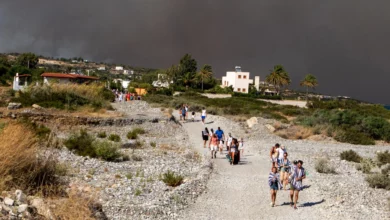
A majority of Greeks do not want the term “Macedonia” used in any solution to a long-running dispute over the former Yugoslav republic’s name, a poll showed on Sunday.
The dispute over the name of the former Yugoslav Republic of Macedonia (FYROM), as it is formally known, has persisted for nearly three decades and has held up its prospects of joining the European Union.
Greece has challenged the name since Macedonia declared independence from Yugoslavia in 1991, saying it implies territorial claims to a Greek province of the same name.
It has only agreed that the country be referred to internationally as “FYROM” until the row is resolved. That is the name under which it was admitted to the United Nations in 1993.
The two neighbors have agreed to form working groups led by foreign ministers to hold talks on a solution. They are hoping for progress in talks with a UN mediator on Jan. 17.
Greek government officials have suggested that Athens would try to focus on brokering an agreement that calls for a compound name with a geographical qualifier.
However, a nationwide survey conducted by Marc pollsters last week for the Proto Thema newspaper asked if Greece should agree on a compound name including the term “Macedonia”, with 68 percent responding “no” and 23.6 percent “yes”.
Greeks are highly sensitive about the name issue and rallies are planned in Athens and in northern Greece in the coming weeks against any compromise that might retain the name Macedonia.
Macedonia is also the name of Greece’s largest province and of the ancient northern Greek kingdom ruled by Alexander the Great.
Deputy Foreign Minister George Katrougalos said on Sunday that the government was aiming for resolution to the name issue “with national unity”.
“The solution that we will bring to parliament will be accepted not only by the two government partners but much more broadly,” he said.




